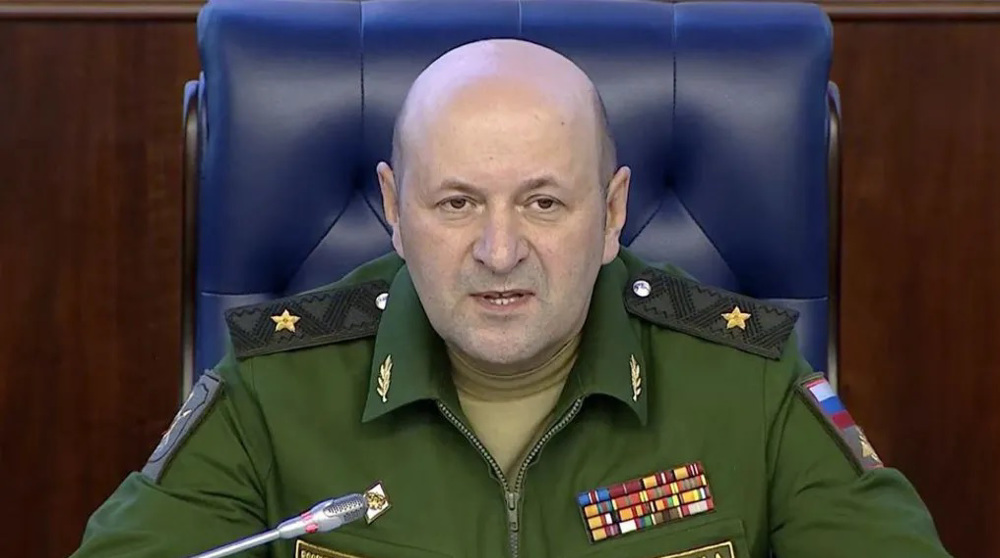West supplying Kiev with arms: Putin
Russian President Vladimir Putin says Ukrainian forces are being supplied with Western weaponry, while expressing optimism about the potential success of a truce pact for eastern Ukraine.
“According to our data, weapons are already being supplied [to Kiev],” Putin said at a Tuesday press conference in the Hungarian capital, Budapest, after a meeting with the country’s Prime Minister Viktor Orban.
The Russian president warned that the supply of Western arms to Kiev would only contribute to higher casualty figures.
“This is not surprising. I am convinced that whoever is supplying the weapons, the number of victims may grow, but the outcome will not change,” Putin noted as quoted in an RT report.
Deteriorating situation in Debaltseve
Putin said Ukrainian government forces lacked the incentive to engage in a war, saying, “The vast majority of soldiers serving in the Ukrainian army have no motivation to participate in an internecine conflict away from home, while the Donbass militia have every reason to defend their families.” He was referring to the pro-Russians in eastern Ukraine are engaged in a war with the Ukrainian army.

The Russian president went on to urge Kiev “not to prevent the soldiers in the Debaltseve cauldron from surrendering, or at least not punish those who simply want to save their lives.”
Putin’s remarks come as nearly 5,000 Ukrainian soldiers are reportedly besieged in the strategic industrial area deep inside the territory under the control of pro-Russia forces.
“Our mission is to save the lives of those caught in the cauldron,” Putin said, adding that Moscow seeks to avert the further deterioration of the relations between Kiev and pro-Russians.
Implementation of Minsk deal
Putin, however, underlined that the situation in other parts of eastern Ukraine was “more or less quiet,” expressing optimism about the implementation of the latest ceasefire agreement reached earlier in the Belarusian capital of Minsk.
He said, “It’s extremely important that the authorities in Kiev have agreed to carry out a deep constitutional reform, to satisfy a desire for self-rule in certain regions – whether that reform is called decentralization, autonomization or federalization. This is the deeper meaning of the Minsk accords.”

The new truce deal endorsed last week by the leaders of Germany, France, Russia and Ukraine calls for a ceasefire and the withdrawal of heavy armaments as the initial steps toward a political settlement of the Ukrainian conflict.
The UN Security Council unanimously approved a Moscow-drafted resolution on Tuesday to back the Minsk agreement, calling for a “total ceasefire” and a “political solution” that respects the “sovereignty, independence and territorial integrity of Ukraine.”
Meanwhile, the pro-Russia forces said on Tuesday that they had taken control of 80 percent of the eastern city of Debaltseve, arguing that since the key city lies within their territory, it should not be included in the truce agreement.
The militants have been battling Ukrainian troops for weeks over Debaltseve, which connects Donetsk and Lugansk, the strongholds of the pro-Russians in eastern Ukraine.
Nearly 5,700 people have been killed and close to a million have been displaced since the armed conflict began in eastern Ukraine in April 2014.
MFB/HJL/HRB
IRGC intelligence forces bust Takfiri terrorist team in western Iran
Syria’s de facto new ruler names Asaad al-Shibani as foreign minister
How 8-year-old Lebanese child Fawaz nixed Ben Gurion’s 76-year-old fallacy
VIDEO | 700,000 Cubans rally at US embassy in Havana against trade embargo
Iranian embassy staffer assassinated by terrorists in Damascus
VIDEO | Press TV's News Headlines
Scandalous detention of Iranians by US to extort information
VIDEO | Israeli forces open fire on Syrians protesting occupation










 This makes it easy to access the Press TV website
This makes it easy to access the Press TV website